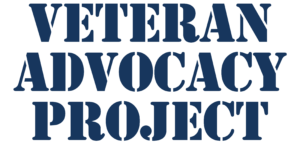The materials on this page are meant as a starting point in discharge advocacy. Trainings cover the statutes, regulations, and Department of Defense memoranda that form the framework for an upgrade or correction application. While some of the sessions were filmed before our current era of reform (kicked off by the Hagel Memo and class-action work of the Yale Veterans Legal Services Clinic), the video sessions allow viewers to explore specific aspects of discharge work in greater detail with various veterans law experts from around the country.
- Our first section links to some of the key statutes and authorities for applications. Be sure to look into branch-specific regulations that were in place at the time your client served (Google is a good start!). If you are not able to find regulations from a specific year, please reach out to VAP and we may have a copy or ideas about how to locate one.
- Next, we have a table of resources, including guides and links to Boards’ sites.
- From Spring 2021, check out VAP’s “Quick-Launch Training.” Tailored for cases that fall within our mission, the session provides:
- an overview of the legal concepts
- a look at the practical steps of taking a case with our clinic
- a section on best practices for communicating with clients who have experienced trauma
- In Spring 2017, Evan Seamone was kind enough to film a training for VAP on identifying propriety and error arguments, “The Search for Needles in an Infinite Haystack.”
- Finally below those sections, you will find our six-part training from Summer 2014. The videos feature inspiring veterans law advocates, such as David Addlestone, Kathleen Gilberd, James Richardson, and others. Topics range from the history of veterans law to working with forensic experts. (With these older videos, please keep in mind how much has changed since 2014, particularly for cases involving mental health conditions, brain injury, and sexual harassment and assault.)
All content, unless otherwise noted, is the property of VAP and may only be used or reproduced with written permission.
The BASICS:
Key Memos:
|
Authorities:
|
| Decisions: We recommend using Lexis, which has decisions from DRBs and BCMRs under their Administrative Materials section (Admin Materials > Military & Veterans Law > DOD DRB Board Decisions and/or DOD BCMR Board Decisions for the Corrections Board cases). If you do not have access to Lexis, decisions can be found in the DOD Boards of Review Reading Room, in addition to those in our dropbox site. Please note that the boards no longer publish MST cases so they will not appear in the Reading Room or on Lexis. |
Written Trainings and Guides:
|
Boards’ Sites:
|
| Samples Please reach out to VAP for samples related to your case. You can find examples of cover letters, FOIA requests, and more on our dropbox site or our new Samples database page. |
VAP DUC 2014 TRAINING MANUAL
created: July 22, 2014; updated: December 7, 2014 (441 pages)
Please note that immense change has occurred since 2014–these resources provide a starting point but there have been reforms regarding the rights of veterans with mental health conditions, brain injuries, and those who have experienced sexual harassment and assault, often referred to as military sexual trauma (MST). Memos and statutory changes have altered the landscape of discharge upgrade advocacy. The Kurta Memo should be carefully considered for any cases involving a mental health condition; and the Wilkie Memo should be reviewed for all cases based on clemency or equity/injustice arguments.
| Chapter 1. Introduction and Historical Overview by David Addlestone Jump to video | Chapter 2. Intro to Discharge Upgrades by Kathleen Gilberd Jump to video | Chapter 3. Writing a Discharge Upgrade Application by Becca von Behren Jump to video |
| Chapter 4. Discharge Upgrade Investigation by Liam McGivern Jump to video | Chapter 5. Medical Resources: Forensic Psychiatrists & Psychologists by Dr. Howard Zonana, MD, and Dr. Madelon Baranoski, PhD Jump to video | Chapter 6. Inside the Department of Defense Discharge Board by John Reeser and James Richardson Jump to video of Reeser & Richardson |
